Collagen is a protein that plays a crucial role in the health and growth of hair. This article explores the optimal collagen dosage for achieving stronger, healthier hair, as well as tips to maximize the benefits of collagen for hair. We’ll dive into the science behind collagen’s impact on hair, the different types of collagen supplements, and how to incorporate collagen into your diet. Whether you’re struggling with hair loss, thinning, or just want to improve the overall condition of your locks, this guide will provide you with the information you need to make informed decisions about your collagen intake for hair growth.
Key Takeaways
- Collagen is essential for hair health and growth, providing the building blocks for strong, healthy hair.
- The recommended daily dosage of collagen for hair growth typically ranges from 2.5 to 10 grams.
- Factors like age, gender, and overall health can influence the optimal collagen intake for individual hair goals.
- Collagen supplements come in various forms, including powders, capsules, and liquids, each with unique benefits.
- Incorporating collagen-rich foods and recipes can also boost your body’s natural collagen production for hair growth.
Understanding the Role of Collagen in Hair Growth
Collagen is the most abundant protein in the human body, and it plays a vital role in the structure and function of various tissues, including hair. Collagen is a key component of the hair follicle and provides the building blocks for keratin, the protein that makes up the hair shaft. Adequate levels of collagen help maintain the integrity and strength of the hair, while collagen deficiency can contribute to hair thinning, brittleness, and even hair loss. Understanding the relationship between collagen and hair structure is crucial in determining the optimal collagen intake for hair growth.
What is Collagen?
Collagen is a complex protein that is responsible for providing structure, strength, and elasticity to various tissues in the body, including the skin, joints, and hair. It is the primary structural component of the extracellular matrix, which serves as the scaffold for cells and tissues to grow and function properly.
Collagen and Hair Structure
Collagen is a vital component of the hair follicle, the structure responsible for producing and anchoring each individual hair strand. Collagen helps to strengthen the hair shaft, providing it with the necessary support and resilience to resist breakage and maintain a healthy, lustrous appearance. Additionally, collagen plays a crucial role in the production of keratin, the protein that makes up the majority of the hair’s structure.
Collagen Deficiency and Hair Loss
When the body experiences collagen deficiency, it can have a negative impact on hair health and growth. Insufficient collagen levels can lead to thinning, brittle, and dull-looking hair, as well as an increased risk of hair loss. This is because collagen is essential for the proper functioning and growth of the hair follicles, and its absence can disrupt the hair growth cycle, resulting in premature shedding and reduced new hair production.
How Much Collagen Should You Take for Hair Growth?
The recommended dosage of collagen for hair growth can vary depending on individual factors, such as age, gender, and overall health. Generally, the suggested daily intake of collagen for hair growth ranges from 2.5 to 10 grams. It’s important to start with a lower dose and gradually increase it to find the optimal level that works best for your hair.
Recommended Dosage for Hair Growth
According to experts, the recommended collagen dosage for hair typically falls within the range of 2.5 to 10 grams per day. This wide range accounts for the diverse needs and responses that individuals may have to collagen supplementation. It’s essential to find the right balance that supports your specific hair growth goals.
Factors Affecting Collagen Intake
Several factors can influence the amount of collagen you need to take for optimal hair growth, including your current hair condition, underlying health issues, and the type of collagen supplement you’re using. Consulting with a healthcare professional can help you determine the right collagen dosage for your specific hair growth goals and overall well-being.
Factors that can affect collagen intake include:
- Age and gender
- Current hair condition (thinning, brittleness, etc.)
- Underlying health issues (e.g., autoimmune disorders, hormonal imbalances)
- Type of collagen supplement (e.g., powder, capsule, liquid)
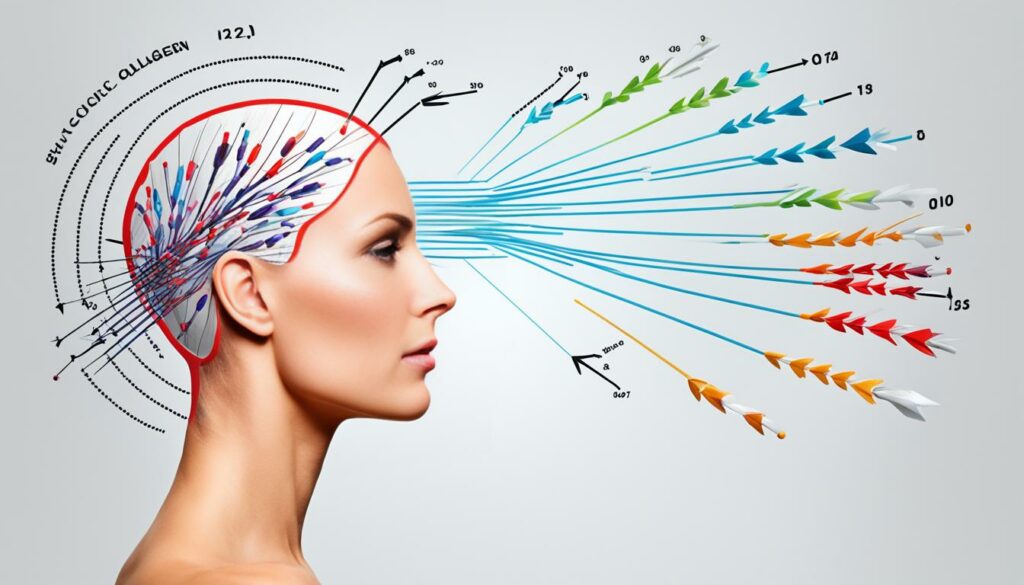
By considering these factors and working closely with a healthcare professional, you can determine the optimal collagen dosage for hair growth that best suits your individual needs and helps you achieve the desired results.
Types of Collagen Supplements
When it comes to taking collagen for hair growth, there are several different types of collagen supplements to choose from, each with its own unique benefits and considerations. Understanding the differences between these collagen formats can help you select the best one to support your hair growth goals.
Collagen Powders
Collagen powders are a popular choice among those looking to boost their collagen intake for hair growth. These powders can be easily incorporated into a variety of drinks, smoothies, and recipes, making them a versatile and convenient option. Collagen powders typically contain a concentrated form of collagen, often derived from sources like bovine, marine, or chicken, and are designed to be easily dissolved and absorbed by the body.
Collagen Capsules
Collagen capsules offer a more portable and convenient option for those who prefer a straightforward supplement routine. These capsules are pre-measured and easy to take, making them a suitable choice for individuals on the go. Collagen capsules may be derived from various sources, including marine, bovine, or chicken, and can be a practical way to ensure a consistent collagen intake for hair growth.
Liquid Collagen
Liquid collagen supplements are designed to provide a fast-absorbing and bioavailable form of collagen for hair growth. These supplements often contain hydrolyzed collagen, which has been broken down into smaller peptides, allowing for quicker absorption by the body. Liquid collagen can be consumed on its own or mixed into beverages, offering a convenient way to incorporate collagen into your daily routine.
| Collagen Supplement Type | Key Benefits | Considerations |
|---|---|---|
| Collagen Powders |
|
|
| Collagen Capsules |
|
|
| Liquid Collagen |
|
|
Incorporating Collagen into Your Diet
In addition to collagen supplements, there are also natural food sources of collagen that can be incorporated into your diet to support hair growth. Foods like bone broth, fish, and certain cuts of meat are rich in collagen. Consuming these foods, or using them as the base for recipes, can help boost your body’s natural collagen production and provide additional benefits for your hair.
Food Sources of Collagen
Incorporating collagen-rich foods into your diet is a great way to get collagen for hair without relying solely on supplements. Some of the best natural sources of collagen include:
- Bone broth
- Salmon and other fatty fish
- Eggs
- Chicken and beef (especially the skin and connective tissues)
- Dairy products like cheese and yogurt
Collagen-Boosting Recipes
Exploring collagen-boosting recipes and incorporating them into your meal planning can be a great way to support hair growth from the inside out. Here are a few ideas to get you started:
| Recipe | Collagen-Rich Ingredients |
|---|---|
| Bone Broth Soup | Bone broth, chicken, vegetables |
| Salmon Avocado Salad | Salmon, avocado, leafy greens |
| Collagen-Infused Smoothie | Collagen powder, berries, Greek yogurt |
By incorporating these collagen-boosting recipes and food sources of collagen into your diet, you can provide your body with the essential building blocks it needs to support healthy, strong hair growth.
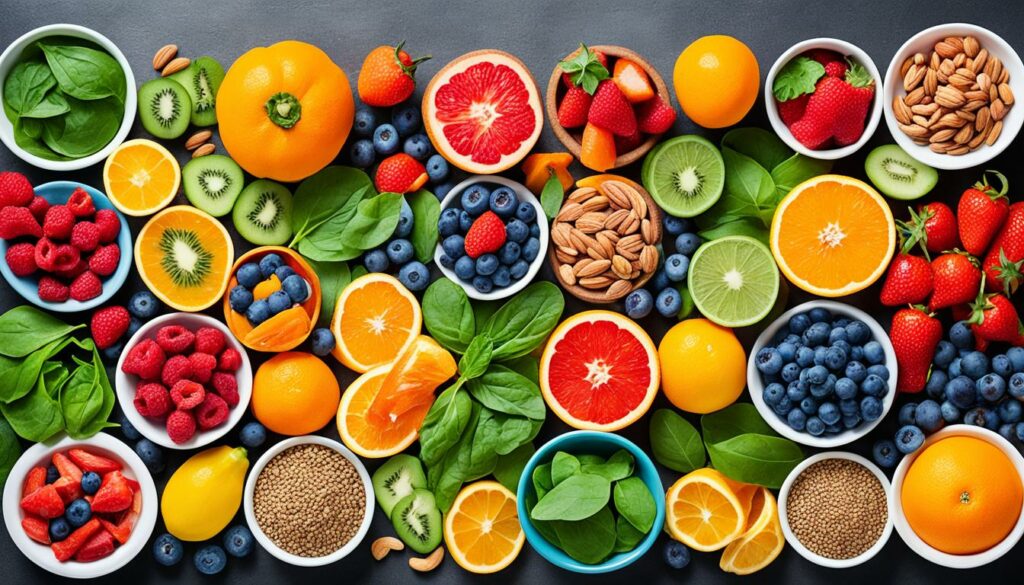
Other Hair Growth Boosters
While collagen is a powerful nutrient for hair growth, it’s not the only ingredient that can support healthy, strong hair. Biotin, keratin, and protein are also crucial components for achieving thicker, fuller locks.
Biotin
Biotin, also known as vitamin B7, is a popular hair growth booster. This essential B-vitamin plays a crucial role in the production of keratin, the main structural protein in hair. Supplementing with biotin for hair growth can help strengthen hair, prevent breakage, and even stimulate new hair growth.
Keratin
Keratin for hair is another key player in maintaining hair health and promoting growth. Keratin is the primary protein that makes up the hair shaft, and supplementing with it can improve hair’s strength, shine, and manageability. Many hair care products, such as shampoos and treatments, also contain keratin to help nourish and rejuvenate the hair.
Protein
Adequate protein intake is essential for healthy hair growth. The hair follicles require a steady supply of protein to produce new hair strands. When the body doesn’t have enough protein for hair, it can lead to thinning, breakage, and even hair loss. Incorporating protein-rich foods, such as lean meats, eggs, and legumes, into your diet can help support your hair growth goals.
By incorporating these other hair growth boosters, such as biotin for hair growth, keratin for hair, and ensuring sufficient protein for hair, you can create a comprehensive approach to achieving thicker, fuller hair alongside your collagen supplementation.
Conclusion
In conclusion, collagen plays a vital role in the health and growth of hair, and understanding the optimal collagen dosage for your individual needs is key to maximizing its benefits. By exploring the different types of collagen supplements, incorporating collagen-rich foods into your diet, and combining it with other hair growth-promoting nutrients, you can create a comprehensive strategy to support stronger, healthier hair. Remember to consult with a healthcare professional to determine the right collagen intake for your specific hair goals and overall well-being.
Achieving thicker, fuller hair may seem like a daunting task, but with the right approach, you can harness the power of collagen and other key nutrients to nourish and revitalize your locks. By focusing on a holistic, science-backed approach to hair growth, you’ll be well on your way to enjoying the lustrous, vibrant hair you’ve been dreaming of.
Remember, every individual’s hair health needs are unique, so be patient, experiment with different hair growth tips, and don’t hesitate to seek the guidance of a trusted healthcare provider. With the right knowledge and dedication, you can unlock the full potential of your hair and enjoy the confidence that comes with a healthy, radiant mane.
FAQ
What is the recommended dosage of collagen for hair growth?
The recommended daily intake of collagen for hair growth typically ranges from 2.5 to 10 grams. It’s best to start with a lower dose and gradually increase it to find the optimal level that works best for your individual needs and hair goals.
What are the different types of collagen supplements available?
The main types of collagen supplements include collagen powders, collagen capsules, and liquid collagen. Each format has its own unique benefits and considerations, so it’s important to explore the options to find the best one for your needs.
What are some natural food sources of collagen?
Foods like bone broth, fish, and certain cuts of meat are rich in collagen. Incorporating these collagen-rich foods into your diet can help boost your body’s natural collagen production and provide additional benefits for your hair.
How can other hair growth-boosting ingredients, like biotin and keratin, complement collagen?
Biotin, a B-vitamin, is known for its ability to promote hair growth and prevent hair loss. Keratin, the main structural protein in hair, can also be supplemented to improve hair strength and shine. Combining these other hair growth-boosting ingredients with collagen can create a comprehensive approach to achieving thicker, fuller hair.
What factors can affect the amount of collagen needed for hair growth?
Factors that can influence the optimal collagen dosage for hair growth include your age, gender, overall health, current hair condition, and the type of collagen supplement you’re using. Consulting with a healthcare professional can help you determine the right collagen intake for your specific needs.




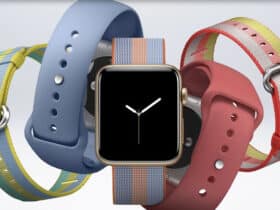
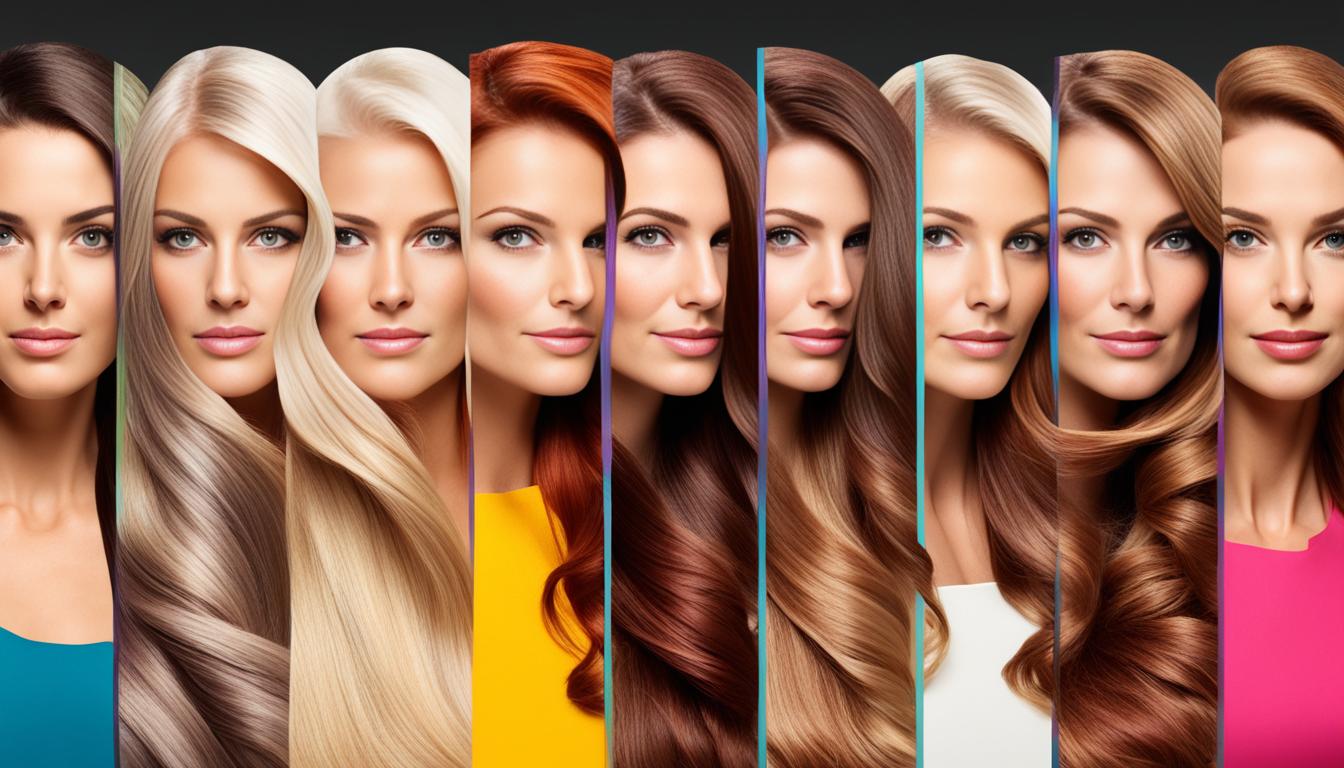





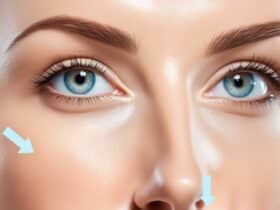
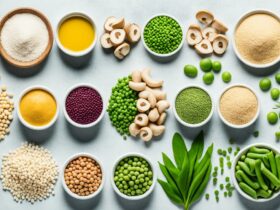
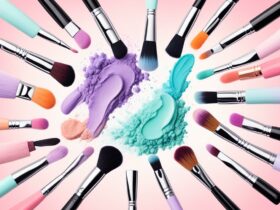
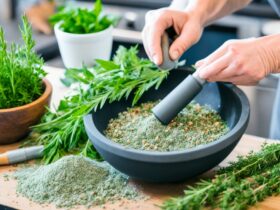
FIND US ON SOCIALS